Recipes for the
Specific Carbohydrate Diet The Grain-Free, Lactose-Free, Sugar-Free Solution to IBD, Celiac Disease, Autism, Cystic Fibrosis, and Other Health Conditions

Raman Prasad with Niloufer Moochhala

DEDICATION
To our families, for the good meals and memories that we have captured in this book. Text 2008 Raman Prasad Photography 2008 Rockport Publishers First published in the USA in 2008 by Fair Winds Press, a member of Quayside Publishing Group 100 Cummings Center Suite 406-L Beverly, MA 01915-6101 www.fairwindspress.com All rights reserved. No part of this book may be reproduced or utilized, in any form or by any means, electronic or mechanical, without prior permission in writing from the publisher. Digital edition: 978-1-61673-845-7 Softcover edition: 978-1-59233-282-3 Library of Congress Cataloging-in-Publication Data Prasad, Raman. Recipes for the specific carbohydrate diet / by Raman Prasad; with Niloufer Moochhala. p. cm.
Includes index. Digital edition: 978-1-59233-282-3 ISBN-10: 1-59233-282-X 1. Inflammatory bowel diseases--Diet therapy--Recipes. 2. Carbohydrate intolerance--Diet therapy--Recipes. I.
Moochhala, Niloufer. II. Title. RC862.I53P73 2007 641.56383--dc22 2007032781 Cover design: Howard Grossman Book layout: Leslie Haimes Photography: Glenn Scott Food stylist: Catrine Kelty The information in this book is for educational purposes only. It is not intended to replace the advice of a physician or medical practitioner. Please see your health care provider before beginning any new health program.
Specific Carbohydrate Diet and SCD are trademarks of Kirkton Press Limited.
Contents
Guide
Foreword
M y name is Raquel Nieves, I am a pediatrician, and I have Crohns disease. My symptoms began in high school and progressed for years until I dropped down to 82 pounds, suffering from daily fevers, severe abdominal pain, fatigue, and anemia. Subsequent standard medications provided little relief and caused many side effects. I came across Elaine Gottschalls book,
Breaking the Vicious Cycle, which detailed the Specific Carbohydrate Diet (SCD), while in medical school in 2001. The diet completely gave me my life back.
It worked beyond my imagination and within a month, I significantly improved. Within a few months, I was completely off of all medications. Meanwhile, excited and completely surprised over how well the SCD worked, I told my doctor about it. Unfortunately, the idea of a diet was met with a lot of resistance. He told me that I was making a mistake, and that it wasnt the diet that had helped me improve, but that it was just spontaneous remission. Knowing that Crohns is a relapsing and remitting disease, he said my symptoms would return if I did not take the medications they were recommending.
Because I was in the medical field, I was devastated that my colleagues did not believe or even want to consider dietary therapy. This skepticism is what led me, along with Roger Jackson, M.D., to publish a medical paper entitled Specific Carbohydrate Diet in the Treatment of Inflammatory Bowel Disease in 2004. The paper discussed our Internet survey of 51 people who suffered from either Crohns disease or ulcerative colitis84 percent of whom were in remission since beginning the SCD. Of these, 61 percent were off all of their medications. Being a doctor, I still do not understand why an alternative therapy such as a healthy diet is so threatening. Despite this trend, some doctors have begun to understand the relevance of the SCD and are investigating it, although funding has been difficult.
Because this diet has helped me so immenselyand I know that I would not be a doctor today if I didnt adhere to itI feel it is my duty to continue to advocate and press the medical community to at least investigate it further. My hope for this diet in the future is that it becomes one of the first-line treatments for inflammatory bowel disease (IBD). If research proves it to be effective, it should be offered as a treatment option, either alone or in conjunction with medications. The best model I can compare this to would be in the case with diabetes. Research has shown how effective diet can be in managing diabetes. Doctors recommend and teach dietary modification to all of their diabetic patients.
In addition, diet is used in conjunction with other standard medications unless diet alone controls the disorder. My hope is that one day the SCD will play this type of role in the treatment of IBD. The challenge to this diet, however, is that it requires strict adherence to be effective. Thankfully, Raman Prasads creative recipes provide tasty meals that make the diet much easier to follow. They are culturally diverse, easy to make, and delicious. Those of us on the SCD appreciate Raman Prasad and all of his efforts to restore health, well-being, and hope to all those suffering from IBD and similar diseases.
Raquel Nieves, M.D.
Introduction
T his book came into being due to a toothbrush I innocently swished in the Rio Grande River during a high school canoe trip and a resulting case of Montezumas revenge. The incident led to months of antibiotics and antiparasitic medication, painful medical complications, and a diagnosis of ulcerative colitis at age seventeen. During a five-minute, post-sigmoidoscopy meeting on the day I was diagnosed, a gastroenterologist quickly told me, Do not eat raw vegetables, fruit, popcorn, or nuts ever again. I was given a prescription for prednisone, and life veered off for a while. Years eighteen through twenty-three passed by in a surreal blur.
I could never count on feeling well the next day. At age twenty-four, after a hospital stay and with drugs having little effect on the disease, the doctor described my intestines as resembling bloody hamburger. Surgery was the next option, and hope waned.
Another Chance
However, that same year, I was lucky enough to find Elaine Gottschalls book
Breaking the Vicious Cycle through the soon-to-be-popular Internet (it was 1996). The book proposed treating inflammatory bowel disease (IBD), diverticulitis, celiac disease, cystic fibrosis, and chronic diarrhea through a Specific Carbohydrate Diet (SCD). After reading it twice, the premise behind the diet made sense.
The author described a vicious cycle in which injury to the surface of the small intestine leads to the inability to properly digest the carbohydrates in many foods, including bread, pasta, rice, and milk. When the body cannot digest these foods, the undigested carbohydrates become energy that fuels bacterial overgrowth in the intestinal tract. The small intestine becomes injured further and responds to the increase of bacterial by-products by creating more mucus. In turn, the mucus leads to impaired digestion and the cycle escalates, resulting in symptoms such as diarrhea and eventually IBD. The diet attempts to break this cycle by avoiding carbohydrates that cannot be properly digested, thereby depriving harmful bacteria of energy. In addition, the diet includes acidophilus, obtained through homemade yogurt, which restores the intestines bacterial balance.


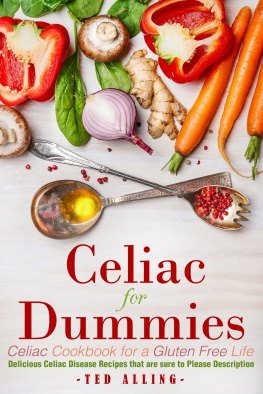



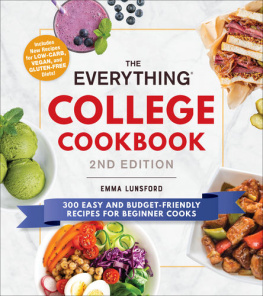
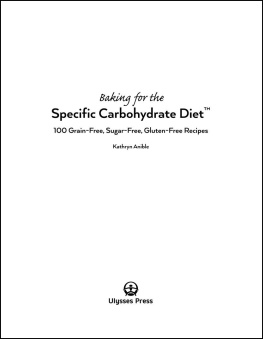
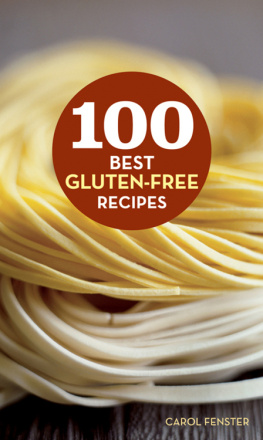
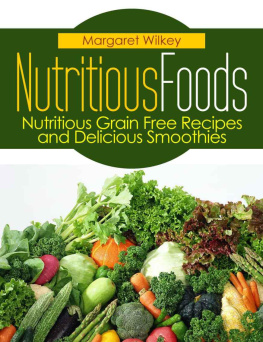
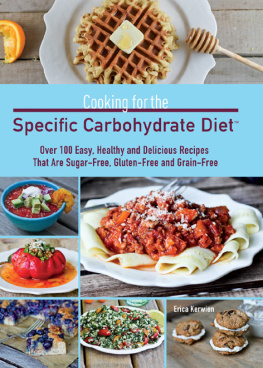
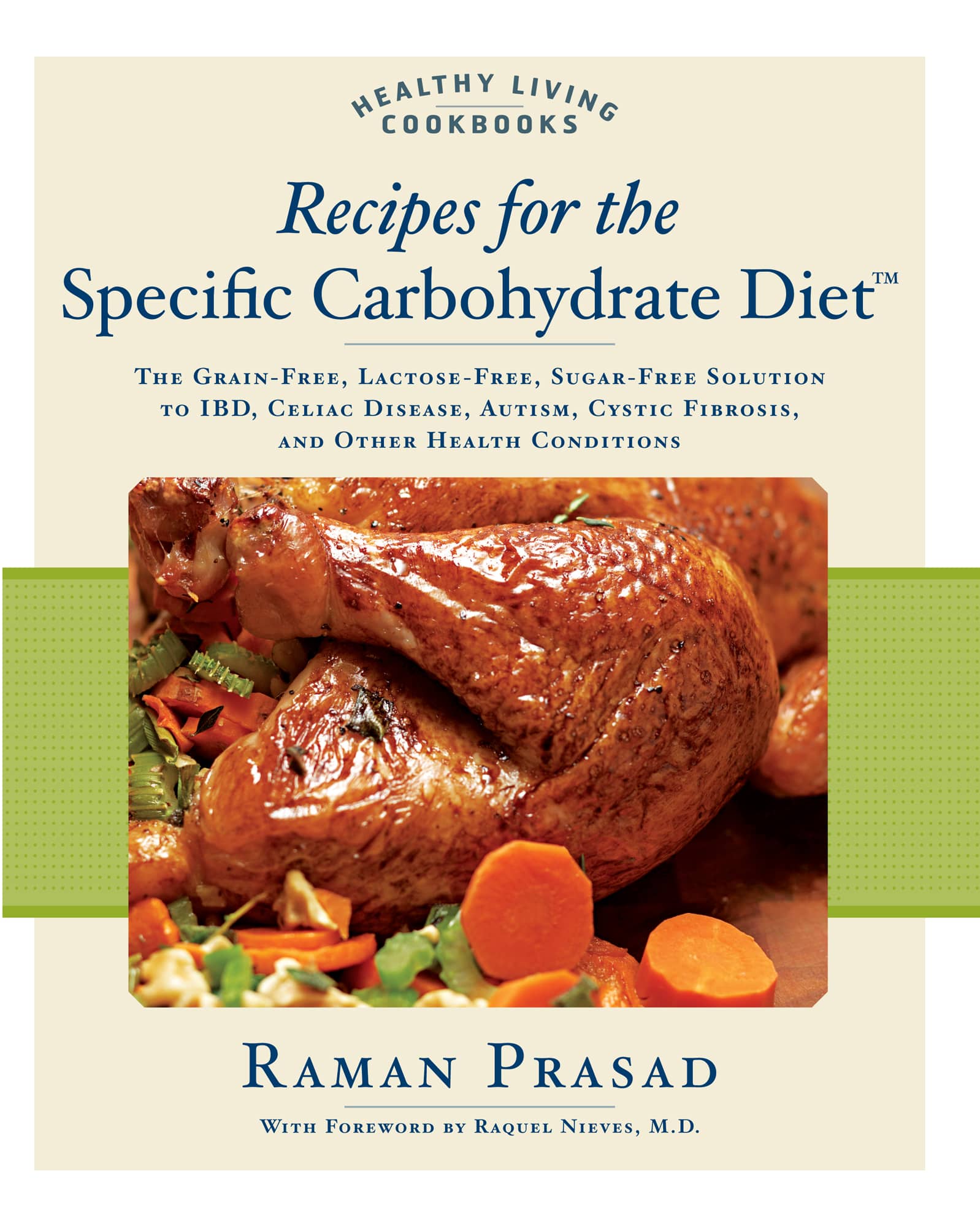

 Raman Prasad with Niloufer Moochhala
Raman Prasad with Niloufer Moochhala  DEDICATION To our families, for the good meals and memories that we have captured in this book. Text 2008 Raman Prasad Photography 2008 Rockport Publishers First published in the USA in 2008 by Fair Winds Press, a member of Quayside Publishing Group 100 Cummings Center Suite 406-L Beverly, MA 01915-6101 www.fairwindspress.com All rights reserved. No part of this book may be reproduced or utilized, in any form or by any means, electronic or mechanical, without prior permission in writing from the publisher. Digital edition: 978-1-61673-845-7 Softcover edition: 978-1-59233-282-3 Library of Congress Cataloging-in-Publication Data Prasad, Raman. Recipes for the specific carbohydrate diet / by Raman Prasad; with Niloufer Moochhala. p. cm.
DEDICATION To our families, for the good meals and memories that we have captured in this book. Text 2008 Raman Prasad Photography 2008 Rockport Publishers First published in the USA in 2008 by Fair Winds Press, a member of Quayside Publishing Group 100 Cummings Center Suite 406-L Beverly, MA 01915-6101 www.fairwindspress.com All rights reserved. No part of this book may be reproduced or utilized, in any form or by any means, electronic or mechanical, without prior permission in writing from the publisher. Digital edition: 978-1-61673-845-7 Softcover edition: 978-1-59233-282-3 Library of Congress Cataloging-in-Publication Data Prasad, Raman. Recipes for the specific carbohydrate diet / by Raman Prasad; with Niloufer Moochhala. p. cm.